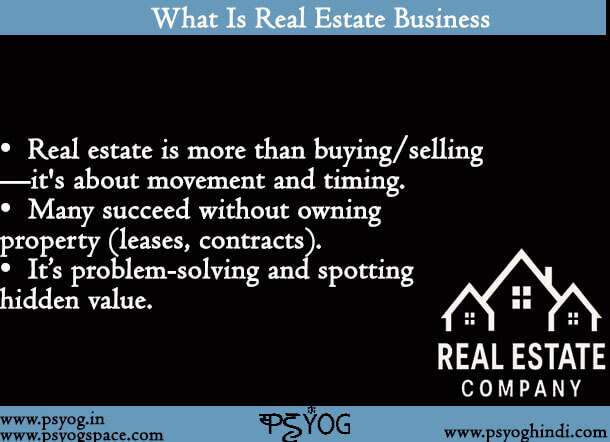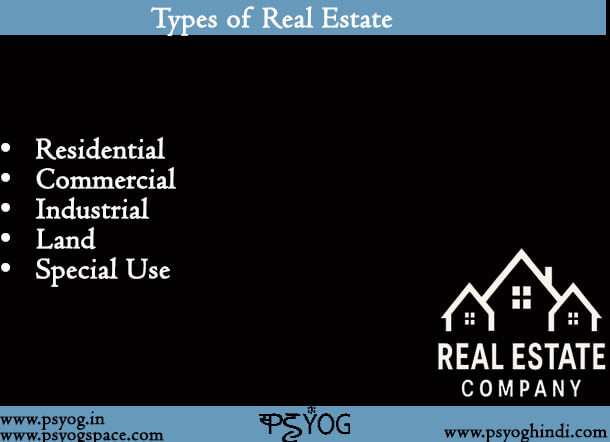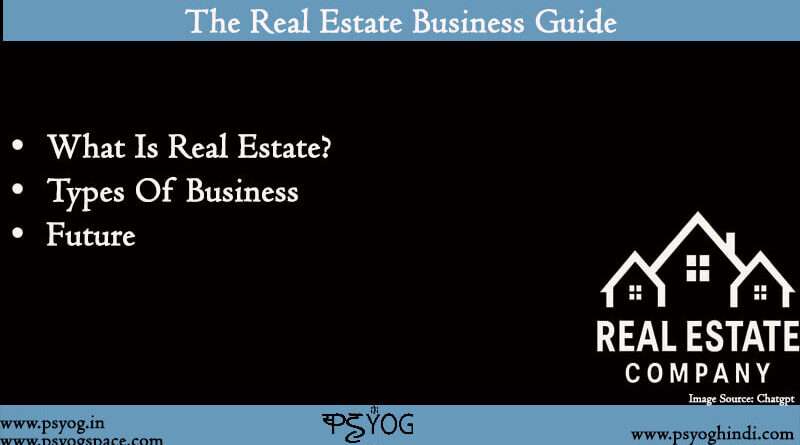What Is Real Estate: Types, Business, Relevant Information
We hear the term everywhere—on street signs, in family conversations, in movie scripts. But have you ever paused to truly ask, what is real estate? And when the word business gets thrown into the mix, does that change the meaning?
Here’s the thing: real estate isn’t just property. It’s not just houses, or buildings, or open land waiting for a buyer. It’s history, it’s emotion, it’s strategy, and sometimes, it’s chaos. Ask ten people what real estate means to them, and you’ll get ten different answers. But tucked underneath all those layers, one truth remains: real estate is deeply human. It holds memories, hopes, mistakes, and dreams.
So, what is real estate at its root? It’s land. It’s everything fixed to that land—homes, trees, fences, even empty silence. But when that land starts moving—changing hands, growing in value, being transformed into something useful or beautiful—that’s when the real estate business begins to take shape.
You see, the real estate business isn’t just about money. It’s about vision. It’s knowing how a quiet street today might become a bustling market tomorrow. It’s being able to see potential where others see nothing. And maybe, it’s also about knowing when to walk away.
What Is Real Estate Business
Let’s stretch the definition beyond the usual. The phrase what is real estate business has been worn out by textbooks and sales seminars. But in truth, it’s not as tidy as it sounds. (Read: What is MLM marketing?)
The real estate business is a shifting, breathing ecosystem. It doesn’t sit quietly waiting for investors. It demands movement. It rewards those who listen closely—to market noise, to people’s needs, to subtle changes in laws and city plans. The real estate business is never still.
And here’s something rarely mentioned: some of the most impactful real estate entrepreneurs don’t even own property. They might lease land and sublet it. They might control property via contract, not ownership. They might even broker deals quietly, behind the scenes, earning six figures without ever picking up a hammer or a house key.
Understanding what is real estate business means peeling back its surface. It’s not just buying low and selling high. Sometimes, it’s about solving problems—like turning abandoned warehouses into thriving art studios. Or renovating an old family home to preserve its legacy. Or spotting the one plot of land that no one else noticed, but you did.

Types of Real Estate
There’s no one-size-fits-all in real estate. Each type speaks a different language:
- Residential: The heart of familiarity—homes, condos, flats. But even within this lies a thousand stories. First-time buyers. Divorce sales. Generational legacies. It’s not just buying or selling—it’s emotion packaged in paperwork.
- Commercial: Strip malls, cafes, co-working spaces. Commercial real estate talks in footfall and profit margins. It lives where business lives.
- Industrial: Factories, storage units, distribution centers. It’s less about curb appeal, more about functionality—and often, bigger payoffs.
- Land: Unshaped, unclaimed, and sometimes underappreciated. But land is where visionaries play. Because land can become anything, if you have the patience and the plan.
- Special Use: Think of schools, temples, amusement parks—even cemeteries. These don’t often enter cocktail conversations, but they are still part of real estate’s broad scope.
Knowing what is real estate means knowing that each type moves to its own rhythm. And understanding the business means figuring out which rhythm suits you best.

The Evolution of Real Estate Over Time
Real estate wasn’t always about commissions and open houses. Back in the day, owning land was often a matter of survival—or domination. Land was seized, inherited, divided in maps that didn’t care about families or culture. It was power.
Fast forward centuries. Now, we browse listings on apps. But the stakes are still high. Property still defines wealth, even if the packaging has changed. (Read: What are mutually exclusive events?)
What’s truly wild? In recent years, we’ve started selling virtual land. That’s right—people are buying plots in digital worlds. Which makes us ask: what is real estate, really, if it can exist without soil?
Yet even with all the tech upgrades, the soul of real estate hasn’t changed. It’s still about space. About the longing to build something on that space. And that’s as ancient as humanity itself.
Real Estate vs. Real Estate Business
Let’s cut through the noise. Owning property and being in the real estate business aren’t the same.
Owning a house? That’s real estate. Renting that house out, or flipping it for profit? That’s the business. There’s a subtle but powerful difference.
Here’s a quick visual:
Real Estate:
- You inherit land
- You buy a home
- You lease a flat
Real Estate Business
- You build duplexes and rent them
- You flip that home within 6 months
- You sublease it at a profit
One is passive. The other is creative, active, strategic. A landlord may own twenty units and still not understand the business. Meanwhile, a kid wholesaling deals from a laptop might be deep in it.
If you’re serious about learning what is real estate, make sure you’re asking yourself the deeper question too: are you an observer—or are you a player?
Common Myths and Cold Realities
Let’s get real for a moment. There are myths that float around in real estate like fog:
- You need a huge bank account to get started: Not always true. Knowledge and timing can be more powerful than money.
- All property goes up in value: Ever heard of Detroit in the 2000s? Or a ghost town? Property can sink.
- It’s easy passive income: If you’ve ever dealt with a busted water line at 2 a.m., you know better.
- Only experts make money in this field: Many of the wealthiest learned through trial and bruises. Experience, not degrees, tends to win here.
- Once you buy, you’re set: Maintenance, taxes, tenants—all can eat away your margins if you’re not sharp.
Understanding what is real estate isn’t enough. You’ve got to unlearn the fantasy and face the real mechanics of how this world works.
Real Estate Business Without Owning Property
Think you need a deed to make money in real estate? Not always.
Here’s how people enter the business without ownership:
- Wholesaling: Lock in a good deal and sell the contract—no property held.
- Bird-dogging: Spot opportunities and get paid by investors.
- Property management: Handle operations for owners and charge a fee.
- Photography or staging: Help sell homes faster and smarter.
- REITs: Like stock market shares—but for large property portfolios.
- The landscape is wide. If you’re imaginative and persistent, the real estate business has a door open for you—even if you never own a square foot.
Conclusion
So, after everything, what is real estate? It’s more than space. It’s where life happens—birthdays in the living room, retirements on a porch, silent moments on a balcony. It’s personal. It’s powerful. (Read: Deepinder Goyal aerospace investment)
And what is real estate business? It’s how we take those spaces and give them purpose. It’s vision mixed with risk. It’s contracts, chaos, and creativity, all stitched together.
In a world obsessed with speed and screens, real estate remains stubbornly physical. It’s still about the land under your feet—and what you’re willing to do with it.
Maybe that’s why, despite all the changes, real estate still matters. Not because it’s easy, but because it’s real.
FAQs
What is real estate in simple words?
In simple words, real estate means a land and something that is permanently built of attached to it. Real estate is a huge business and includes builders, agents, buyers and sellers.
What does real estate company mean?
A real estate company is a company that deals with buying, selling, renting and managing property. Some of such companies only deal with buying and selling, while some also focus on property development. When you see a complex coming up in an empty land, be assured that some real estate business is underway.



